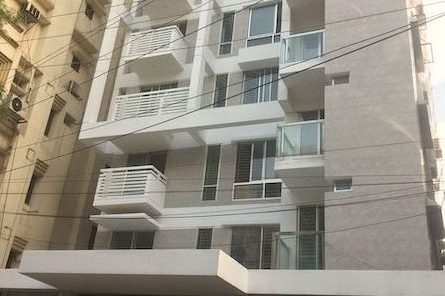Bangladesh’s real estate sector will hopefully be able to cope with the ongoing coronavirus pandemic as instalment collection on previous sales started to pick up after the economy reopened in June, according to various realtors and financiers.
Besides, the government has allowed the use of untaxed income to purchase land or apartments while the reduction in registration fees makes this the perfect time to invest in real estate at reasonable costs.
However, the country’s realtors also said that apartment prices could eventually increase due to the rising cost of raw materials and delays in project implementation.
“We had feared that we would face difficulty in surviving the pandemic following a drop in demand for housing amid the unprecedented economic uncertainty brought on by the Covid-19 fallout,” said Alamgir Shamsul Alamin, president of the Real Estate and Housing Association of Bangladesh (REHAB).

But the situation is improving alongside the increase of economic activities, he added.
Soon after the nationwide ‘general holiday’ aimed at curbing the spread of coronavirus within Bangladesh came to an end on 30 May, realtors resumed construction on their projects in line with health and safety guidelines to prevent further outbreaks.
As such, developers have been forced to recruit a smaller number of workers to maintain adequate social distancing at projects and this, in turn, is causing delays in the handover process.
Not only is this an inconvenience for the client, but it also inflates the production costs for the developer, Alamin said.
Certain realtors might not even be able to reach a breakeven point on their investments, according to the REHAB president.
Meanwhile, much of the country’s burgeoning middle-class, a key demographic for the real estate industry, cannot afford housing at current rates.
“Therefore, the government should undertake topical policy measures that would help provide reasonably-priced housing for middle-income people,” Alamin said.
Due to the prolonged nationwide lockdown that began on 26 March, about 6,000 projects belonging to various REHAB members were in a state of limbo as construction work was halted for about two-and-a-half months.
“We are not thinking from a business standpoint at the moment. Instead, we are trying to tackle the crisis,” Alamin said.
The sector got a shot in the arm in July last year, when the government moved to slash registration fees and interest rates on loans.
Now though, realtors are just trying to survive the pandemic rather than make a profit, he added.
Echoing the sentiment, Kamal Mahmud, vice-president of REHAB, said the industry has seen a ray of hope in its fight against the coronavirus fallout following changes to certain state-policies.
The government’s decision to relax the rules on investing untaxed income in real estate slightly benefitted the sector over the past two months while the reduced registration fees are helping sales to recover gradually.
“And although the disruption in the supply chain for raw materials is an issue that persists, I am hopeful that the sector will return to normalcy when the coronavirus crisis comes to an end,” Mahmud added.
Subsequently, the country’s banking sector is also enjoying some relief thanks to an increase in instalment collection while the other economic activities are gathering momentum as well.
“This is the right time for those who dream of becoming homeowners in Dhaka to purchase an apartment as realtors need liquidity to recover from the pandemic,” said Md Sirajus Saleken, head of mortgaging at IPDC Finance, a major provider of home loans in the country.
In this regard, IPDC Finance will introduce new financing products while keeping both the realtors and clients in mind, Saleken said, adding that realtors will also come forward with their own offers.
The non-bank financial institution funds around a dozen well-reputed realtors for home loan borrowers.
Houses in the Uttara, Bashundhara and Mohammadpur areas have the highest demand, said Mark Nosworthy, chief executive officer of bproperty, the biggest online real estate broker in Bangladesh.
These areas make up about 35 per cent of the total demand for 2020.
If the sector recovers, its allied industries, of which there are 230, will also benefit, according to industry insiders.
